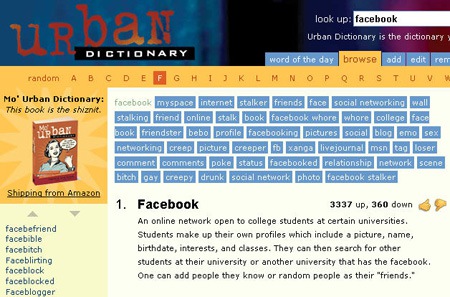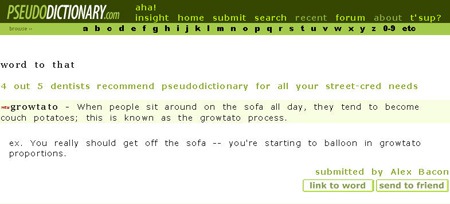I have already blogged on using dictionaries for keyword research. Most of the online resources mentioned in that post are based on traditional English dictionaries that offer accurate definitions, grammatically correct phrases and usage patterns.
The interactive nature of the Internet has made room for a new linguistic tool: user-generated dictionaries:
Taking advantage of the dynamic nature of the Internet [user-generated dictionaries have] added to lexicography an element of dynamism: definitions are pluralistic and open to reinterpretation by every user. Moving away from the traditional role of reference works as sources of static information and into a participatory activity, it might be said that user-generated dictionaries are reinventing the very nature of dictionaries themselves.
That said, user-generated dictionaries can be especially useful for topic and keyword research due to their dynamic nature: learn how real people are using your key terms and how they explain those terms and word combination.
Here are four most popular user-generated dictionaries you can check out:
1. Wiktionary is the most advanced user-generated dictionary providing a wide variety of word-related information:
- all meanings and definitions;
- usage samples;
- synonyms and antonyms;
- derived terms;
- related terms.
2. Urban Dictionary: one of the most popular user-generated reference sources enabling members to submit words and definitions and vote for definitions added by others. It mainly focuses on slang and Internet jargon.

Check out:
- term related words;
- word usage samples;
- Internet realia definitions (e.g. FaceBook);
- phrases using the word and derived terms.
3. Pseudo Dictionary focuses on words “that wouldn’t make it into a real dictionary”, i.e. made-up slang words.
The site offers to submit a made-up word and get credit for it (in the form of a nice dofollow link by the way).
While the dictionary is pretty much useless for keyword research, you can use it for inspiration, link bait and humor ideas.

4. Double-Tongued Dictionary “catches” new emerging words and idioms. You will see a word and the citation it was first used in. You can also comment and expand each entry.
The search for any word will also pull all entries where this word was used either in the citation or in the comment.





![[SEO, PPC & Attribution] Unlocking The Power Of Offline Marketing In A Digital World](https://www.searchenginejournal.com/wp-content/uploads/2025/03/sidebar1x-534.png)